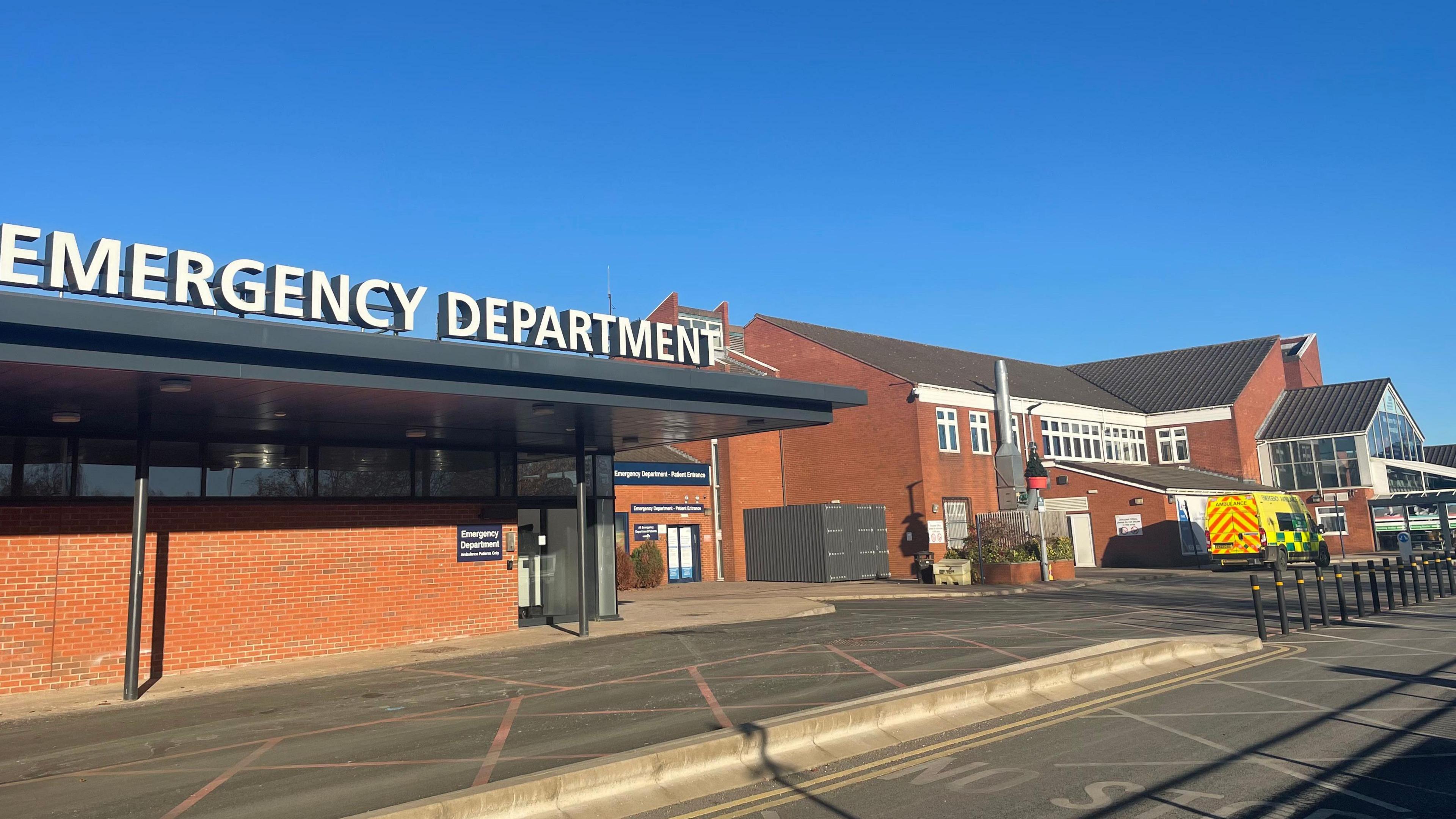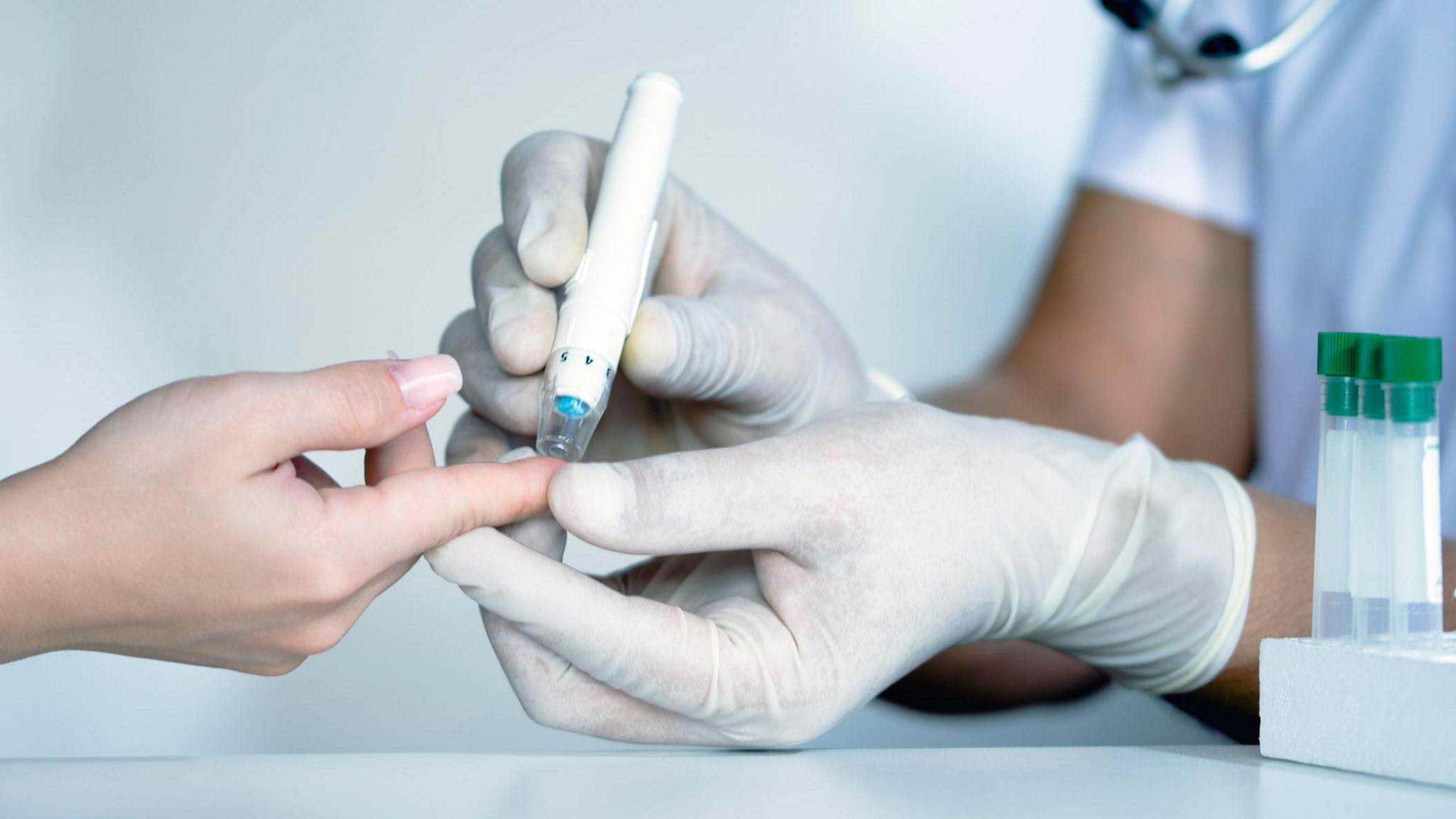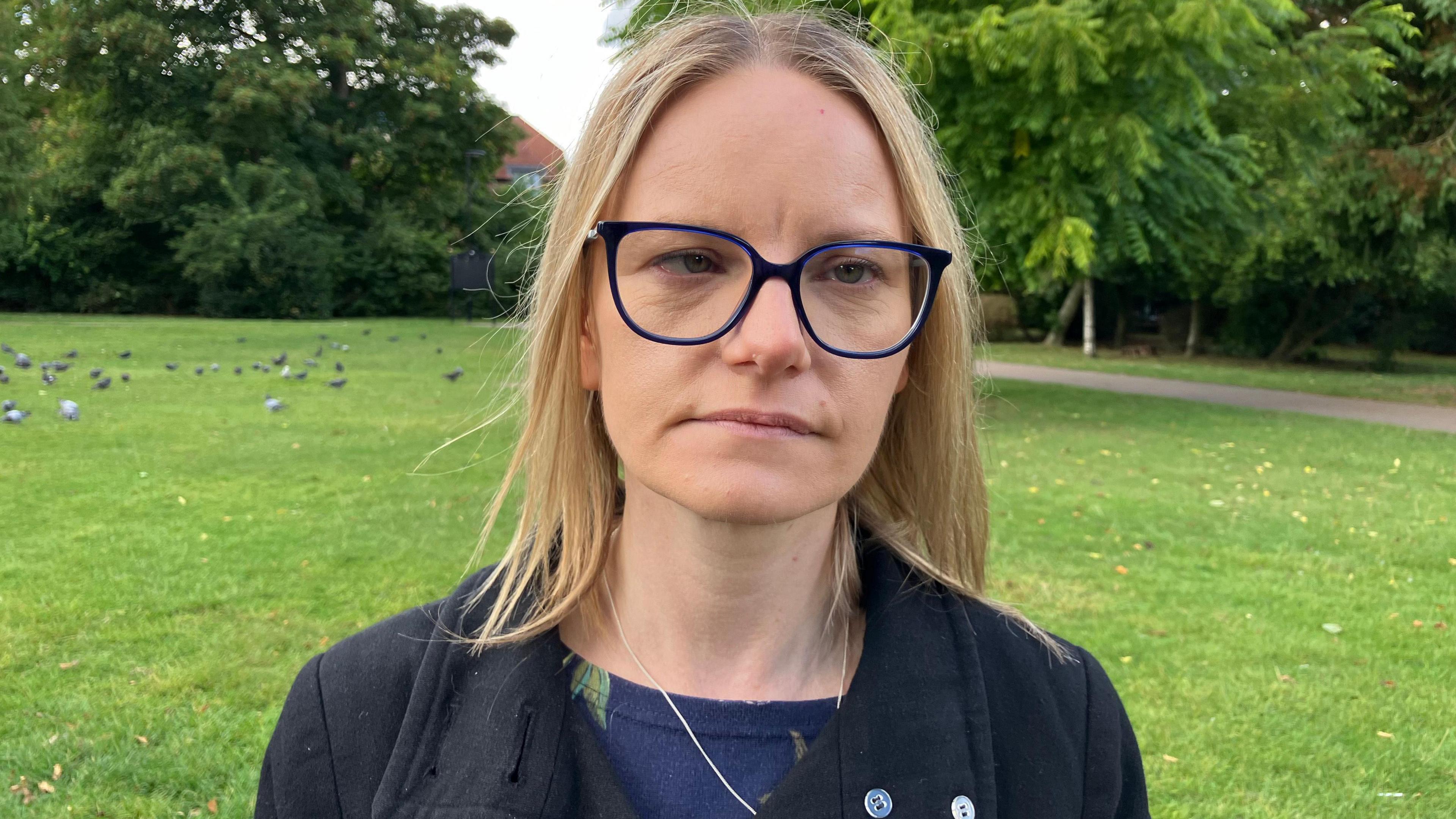Hospital confirms 2,100 flawed diabetes tests

Hospital bosses say those affected have been recalled for new tests
- Published
A hospital in Derbyshire has been confirmed as among those affected by errors in thousands of diabetes tests, it has been confirmed.
In September a BBC investigation found problems with machines meant at least 55,000 people would need further tests, with some wrongly diagnosed with type 2 diabetes and even prescribed medication they did not need.
A Freedom of Information request has now shown more than 2,100 patients screened by Chesterfield Royal Hospital were affected.
The NHS trust that runs the hospital said the issues had now been investigated and rectified with patients recalled for retesting.

Patients tested between 25 June 2024 and 2 December 2024 were affected, the trust said
The procedure, known as the haemoglobin A1C test, measures average blood sugar levels which are used to diagnose type 2 diabetes and monitor the condition.
According to the Medicines and Healthcare products Regulatory Agency, issues with the tests on these machines were first reported in April 2024.
In September 2024 it emerged 11,000 patients faced re-testing after a machine at Luton and Dunstable Hospital issued incorrect diabetes results.
A year later NHS England confirmed 16 hospital trusts use the machines, made by Trinity Biotech, which had produced inaccurate test results.
Now those affected have been named, with Chesterfield Royal Hospital NHS Trust confirming 2,131 patients had been recalled - though some other trusts had more than 10,000 affected.
It confirmed patients from both the hospital and GPs, tested between 25 June 2024 and 2 December 2024, were involved.
Kevin Sargen, medical director at the trust, said: "As soon as we were aware of the faulty analyser, we withdrew it and sent all our samples to another laboratory.
"We prioritised the reassessment of clinical advice given to affected patients to ensure their safety and wellbeing.
"Under our duty of candour - and as it is the right thing to do - we contacted and supported all relevant patients working with their GPs.
"Patients have now been recalled as per clinical priority."
NHS England said fewer than 10% of its laboratories were affected, all had either replaced the machines or addressed calibration issues and the clinical risk to patients was low.
In a statement in September, Trinity Biotech said it had worked closely with the UK health regulator and had contacted all relevant hospitals.
Get in touch
Tell us which stories we should cover in Derby
Follow BBC Derby on Facebook, external, on X, external, or on Instagram, external. Send your story ideas to eastmidsnews@bbc.co.uk, external or via WhatsApp, external on 0808 100 2210.
Related topics
- Published5 September

- Published13 September 2024
